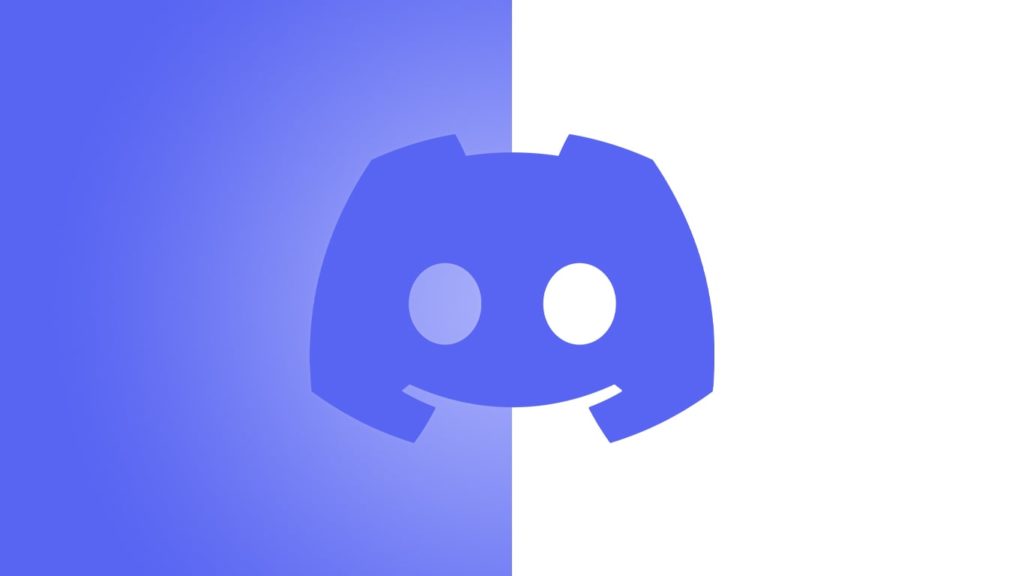
Discord has been a popular chat app for gamers, and it’s easy to see why. It offers voice, text, live streaming, and video chat all in the same place. You can create your servers and customize them with themes, too. Whether you’re a professional or a gamer, there’s no denying that useful chat software may significantly increase the collaborative efforts of any group. Consequently, a lot of people utilize Discord, which doesn’t mean alternatives are inferior.
Quite the opposite! Some people have criticized Discord’s user interface or the lack of end-to-end encryption. Here is the list of excellent Discord alternatives, both free and paid. This will help you discover one that works for you and your team. Take a look at the following applications to see whether they fit your needs.
Our issues with Discord
- Discord doesn’t have a very user-friendly UI, and sometimes it can get confusing.
- It is solely a messaging app, where servers are basically chat rooms.
- It also frequently experiences server raids, which can ruin the user experience.
- The platform is also fraught with bots.
- It does offer limited integration, but nowhere near what is actually needed.
- And finally, it has a few privacy issues as well, since it collects users’ personal data.
1. Telegram
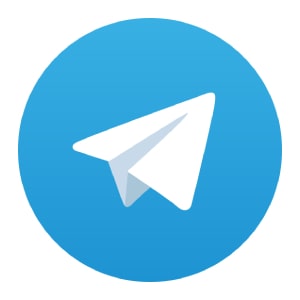
According to the recent statistics, around 400 million users have Telegram. The figures are speculated to cross 500 million by the end of 2022. Telegram is a robust communication tool that allows connection and collaboration with groups of up to 20,000 people. They can share data and synchronize chats on multiple devices. The main difference between Discord and Telegram is that the former competes with the latter more directly.
There are many equivalent features, including real-time messaging, private and public groups, public channels, and limitless customization options. Additionally, the benefit of the Telegram video calling feature is that it works for both one-on-one and group conversations, making it even more practical. It’s similar to Discord in that you may use it to run large groups and include scripts. Discord does not, however, offer end-to-end encryption for private messages, which is available with Telegram.
Pros
- High-level encryption for security.
- Supports large groups and channels.
- Available on multiple platforms.
- Supports file sharing of any type.
- Free to use.
Cons
- No video conference for groups.
- Privacy concerns over cloud storage.
- Limited integration with third-party apps.
2. Skype
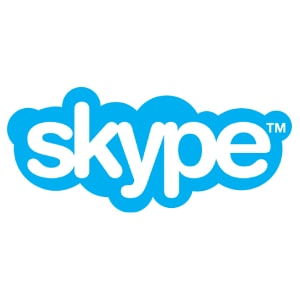
It’s no wonder there are a bunch of third-party clients, all with unique features and characteristics. For example, Discord itself was originally an extension for Skype, but it has evolved to become more than just a chat client. There’s a strong chance you’re already acquainted with Microsoft’s software. It offers both voice and text chats along with synchronized group/private conversations between users across multiple devices.
Other than that, third-party clients have various features, such as voice channels, video chats, and group calls for up to 100 people at once. Additionally, some bots help organize the community around your server. Moreover, it lets you create custom triggers or use slash commands to completely control members’ behavior.
Pros
- Quality video and audio calls.
- Screen sharing capability.
- Integrates with other Microsoft products.
- Real-time translation feature.
- Multi-platform availability.
Cons
- Requires high bandwidth for quality.
- Occasional technical glitches.
- Limited advanced business functions.
You may also be interested in the Skype alternatives.
3. TeamSpeak
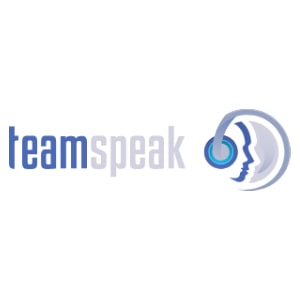
TeamSpeak is a voice and text chat software developed by TeamSpeak Systems GmbH. It’s often used for gaming purposes but can be applied to many other fields. For instance, you can create private channels on your server to have full control over who talks with whom within. There are also public areas everyone has access to, available via web browsers or mobile apps, that work across platforms such as iOS.
Furthermore, a myriad of plugins extends its functionality. For example, you can integrate TeamSpeak into game streaming services like Twitch and Discord or get custom sounds/alerts when someone joins your channel. TeamSpeak is also one of the few applications that allow users to connect to other servers without downloading or installing any software. This makes it very convenient for people on the go.
Pros
- Excellent voice quality.
- Highly customizable.
- Private, secure servers.
- Low latency communication.
- Lightweight and efficient.
Cons
- Outdated user interface.
- No built-in text chat.
- Limited features beyond audio communication.
4. Slack
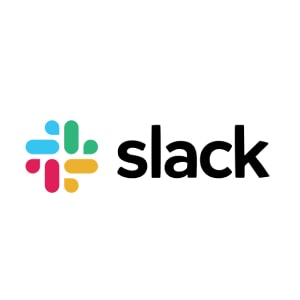
Slack is a communication platform for teams that was first released in mid-2014, and now every professional loves it. It has quickly become one of the most popular tools because it’s simple to use and helps people be more productive with its features. For instance, you can create different channels and allow team members to communicate in private groups and via direct messages.
There are also integrations with other software/services that let you turn emails into tasks. You can also view updates on code changes and add files from Dropbox or Google Drive. A unique feature of Slack is “bots,” which automate certain actions or tasks (such as reminding someone to complete a task). There are many available for users to install.
Pros
- Robust integrations with other tools.
- Efficient team collaboration.
- Real-time messaging and file-sharing.
- Built-in voice and video calls.
- Customizable notifications.
Cons
- Can become cluttered easily.
- Expensive for larger teams.
- Limited file storage in free version.
5. Tox
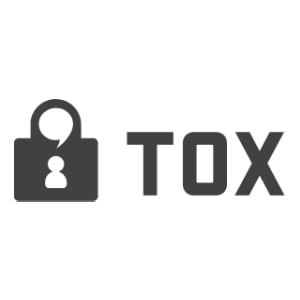
Tox is a peer-to-peer encrypted instant messaging and video calling application that lets you communicate with your friends without worrying about anyone eavesdropping on your conversations. It’s an open-source service and completely free, making it a great choice for privacy-conscious people. All communications are encrypted using the NaCl encryption library, ensuring no one can see or intercept your messages.
You may also make calls to other Tox users for free, regardless of where they are. It does have some limitations, such as not being able to share files (although there are workarounds) and lacking support for group chats. However, development is ongoing so that these features could be added in the future. Tox is available for Windows, Mac OS X, and Linux.
Pros
- Peer-to-peer connection.
- Offers anonymity.
- Encrypted communication.
- Free and open-source.
- No ads or tracking.
Cons
- Less reliable connections.
- Not as popular as alternatives.
- Limited documentation and support.
6. Mumble
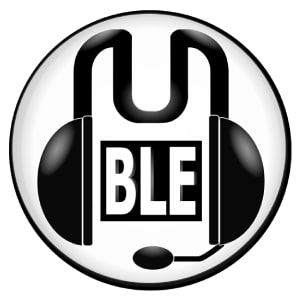
Mumble is an open-source voice chat application for groups of users that was first released in 2010. It’s been gaining popularity ever since because it offers lower latency than traditional VoIP clients, making communication faster and more efficient. The only downside to this service is that you need at least one team member who understands how servers work. They can set the software up properly.
Afterward, you’ll have complete control over permissions or customization options to ensure no one has access to sensitive information or files without authorization. It supports group calls with multiple channels, and third-party developers offer custom bots. You can create polls to get team feedback on certain topics within your server, too. Mumble is available for Windows, Mac OS X, and Linux.
Pros
- Open-source and free.
- Low-latency audio chats.
- Supports positional audio.
- Scalable from small to large groups.
- Secure and private.
Cons
- Complex setup process.
- Lacks a user-friendly interface.
- No built-in text chat.
7. Element
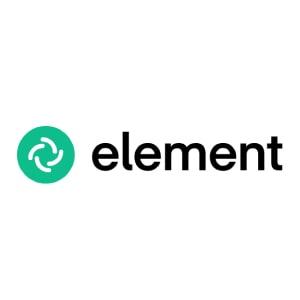
Element is a secure collaboration and messaging platform that lets you share files, chat with team members, and track progress on projects. It’s perfect for small businesses or teams who need to keep their communication organized and in one place. You can create different channels for conversations similar to Slack.
Likewise, you can configure tasks/to-do lists and assign them to specific team members. All messages and files are encrypted using AES-256 bit encryption to ensure your data is safe from prying eyes. While it wasn’t designed for gaming, gamers can also use Element. It supports sharing messages, images, and files of any sort among groups of any size.
Pros
- End-to-end encryption.
- Open-source and decentralized.
- Integrates with other collaboration tools.
- Supports large public groups.
- Customizable features.
Cons
- Occasional performance issues.
- Not as intuitive for beginners.
- Limited customer support.
8. Chanty
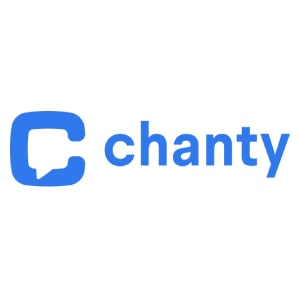
Although Chanty gets advertised as a team chat and task management app, the reason it can replace Discord on your devices is simple. And that is its VoIP feature. The voice chat is not only amazing in quality, but is also clear and stable enough to have a conversation without experiencing call drops or lags as on Discord.
Also, the app is integrable with other third-party apps, making it more customizable and versatile. Hence, next time you and your clan go dungeon raiding, remember to check out Chanty, as it will smoothen your experience.
Pros
- Easy to use interface.
- Built-in task management.
- Unlimited message history.
- AI-powered team efficiency.
- Voice transcription service.
Cons
- Limited free version.
- Fewer integrations than competitors.
9. Rocket.Chat
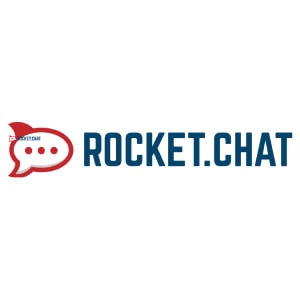
Rocket.Chat is an open-source team chat application that lets you create different rooms for your conversations. It comes with many features out-of-the-box, including file sharing, image galleries, code editing tools, and many others. Integrations are also available to connect it to other software/services, such as Docker or GitHub. These support features allow Rocket.Chat to send notifications whenever something important occurs within the integrated service.
Hence, it makes collaboration easier. Moreover, there’s support for custom emoticons, avatars, and powerful administration controls in case someone leaves the organization/company unexpectedly. Hence, everything stays safe until they’re replaced by another person with permission to access certain information or change settings.
Pros
- Open-source platform.
- Highly customizable.
- Real-time messaging.
- Supports multiple languages.
- End-to-end encryption.
Cons
- Complex setup process.
- Limited free tier.
- Requires frequent updates.
10. Ventrilo
Ventrilo is a voice chat and communication platform, specifically designed for online games, and hence serves as a perfect alternative to Discord. It offers VoIP services and has features like server lists, user channels, and vice detection that can enhance your online gaming experience. The platform also features a secure connection, free from outside interference. Users can call, or even send text messages using this program. And with the help of settings, they can secure channels using admin passwords and facilitate better control.
The platform also offers TTS (text-to-speech) voice generation without being resource-heavy. But the great thing about Ventrilo is that the call latency is very low, no matter where you are using the app. Sadly, it is only available on Windows and macOS.
Pros
- Low latency voice chat.
- User-friendly interface.
- Light on resources.
- High audio quality.
- Extensive administrative options.
Cons
- Outdated design.
- Limited text chat.
- No video calls.
11. Matrix
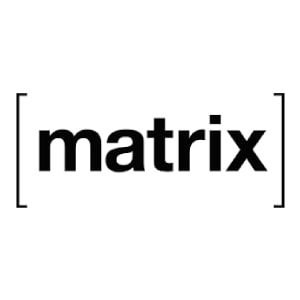
Matrix is an open-source communication platform that lets you connect with other users via chat rooms or directly messaging them. One of the great things about Matrix is that it’s completely decentralized, which means there are no servers that can be seized or taken down. All data is stored on user devices, so there’s no single point of failure. Plus, when it comes to Dapps, well, they are the future.
Therefore, Matrix makes it a great choice for privacy-conscious people. Furthermore, all communication is encrypted using the NaCl encryption library, ensuring that no one can see or intercept your messages. You can also make calls to other users through the app. This is very useful if you need to talk with those outside your team or use it for video conferencing.
Pros
- Decentralized communication.
- Encryption enabled by default.
- Open standard protocol.
- High interoperability.
- Robust ecosystem.
Cons
- Steep learning curve.
- Limited user base.
- Can be overwhelming.
12. HeySpace
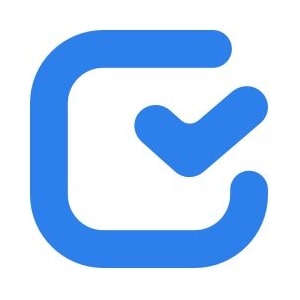
HeySpace is another task and a lightweight project management tool that is enough to replace Discord. Similar to Discord, it is a free-to-use app with easy-to-use communication and collab features. It is more like a dedicated communication solution than a project management app. Hence, is the reason multiple corporates and businesses have already replaced Discord in favor of HeySpace. Some noticeable organizations that have made the switch are Blitzmetrics, Wondersauce, and Arizona University.
Pros
- Project management capabilities.
- Easy task tracking.
- Combines chat & tasks.
- Integrated time tracker.
- Generous free version.
Cons
- Limited integrations.
- UI could improve.
- No offline mode.
13. Flock
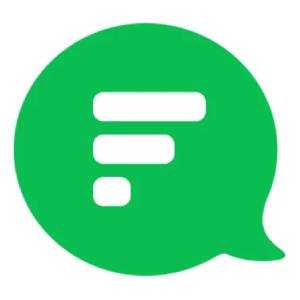
Flock is a team messaging and collaboration platform that offers communication solutions for modern teams. It supports both voice and video calling, along with project management tools, essential for teamwork and collaboration projects. When it comes to organizing information in a centralized place, Flock is much better than Discord. The program is apt for dealing with video conferences and sharing information.
Flock is a very good remote working tool that can help management integrate tasks and collaborate on different projects across departments. You can use it to create custom channels and even use it as a direct messaging app. However, it is only available on computer desktops such as Windows, Linux, or macOS.
Pros
- App integration support.
- Direct & channel messaging.
- Multiple language support.
- Built-in task manager.
- Advanced search features.
Cons
- Occasional lag issues.
- Overwhelming notifications.
- Limited free version.
14. Troop Messenger
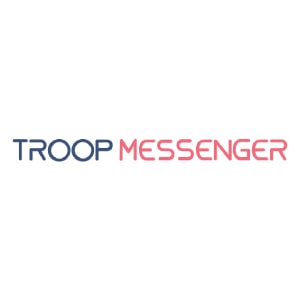
It sounds more like a chat platform for gamers but works exactly the opposite. Troop Messenger is a lightweight communication tool that works for small, medium, and big groups. Unlike Slack, this program does not impose any restrictions on the searchable history of communications. In contrast to Slack, this software allows team members to chat in real-time instead of waiting for each other’s replies.
The advantages of using a computer-based communication system, as opposed to more traditional communication methods, are numerous. It is faster, more productive, and improves the quality of decisions made. Every interaction between the two sides is also recorded for future reference. Finally, a virtual meeting may be held without requiring all team members to meet in one location.
Pros
- Simple, clean interface.
- Affordable pricing.
- Self-destruct messages.
- Impressive file sharing.
- Multilayered data security.
Cons
- Limited third-party integrations.
- No video conferencing.
- Inconsistent mobile experience.